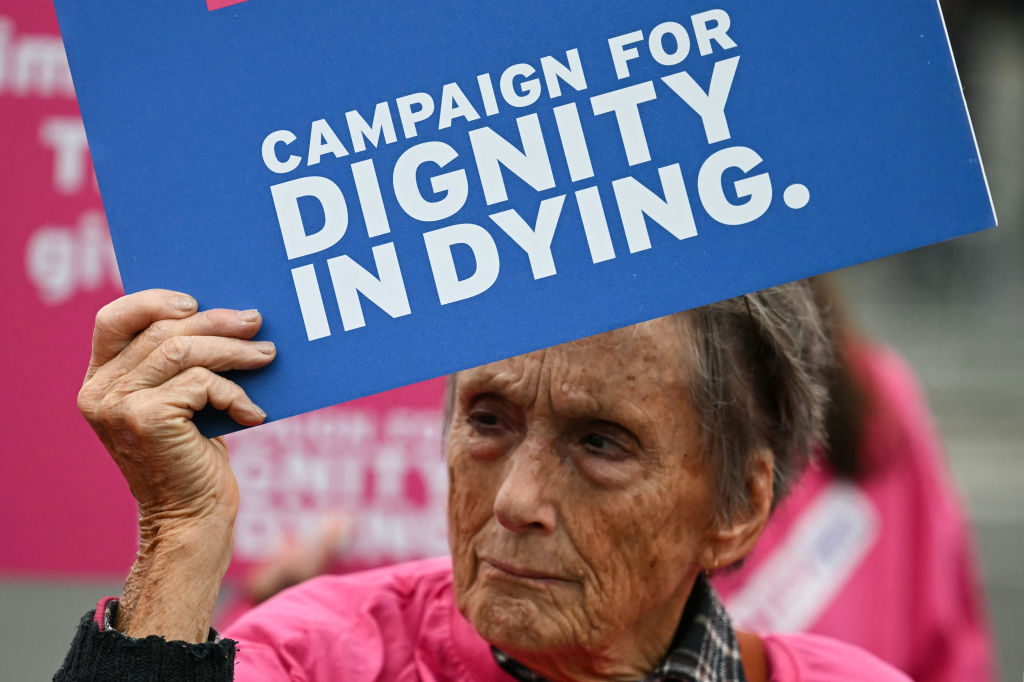Supporters of Kim Leadbeater’s bid to legalise assisted dying through the Terminally Ill Adults (End of Life) Bill seem to have switched focus. Rather than defending the Bill as actually drafted, the priority now seems to be persuading undecided MPs with concerns to vote for the Bill at second reading on the grounds that they will be able to scrutinise and amend the Bill later on.
The strategy reflects the fact that many politicians and groups who are not opposed to assisted suicide in principle have raised significant concerns about the lack of safeguards and other dangers with the current bill. For example, human rights organisation Liberty, which has long supported assisted suicide, argues that “there are significant shortcoming in this Bill that present serious safeguarding risks which are hard to look past.”
Is it reasonable for MPs who are similarly concerned about the lack of safeguards in the Bill still to vote in favour at second reading? Part of the answer relates to the level of scrutiny the Bill is likely to get post-second reading. Constitutional expert Nikki da Costa has pointed out how factors such as the lack of pre-legislative process and impact assessment limit the effectiveness of scrutiny for significant private members bills, a concern also raised by the Institute for Government.
But MPs also need to consider which of the Bill’s problems might realistically be amended and which are more fundamental. Many concerns that have been raised could feasibly be addressed later on. One concern is that doctors will be permitted to raise the issue of assisted suicide with their patients thereby adding pressure on vulnerable people to consider ending their lives. Given that other places like Victoria in Australia explicitly forbid this practice, it seems feasible that an amendment to remove this permission could be considered by MPs before third reading.
Others worry about the lack of an effective conscientious objection clause. Although doctors are not required to participate in helping patients to end their lives, the Bill would require them to refer the patient on to another doctor who is. For many doctors, even referring a patient in this way would go against their conscience and some are understandably asking for clarity about whether they would be struck off if they refused to do so. Further, there is currently no right to opt out of the process for judges.
Given that the conscience clause in the Abortion Act does not contain the requirement to refer patients on, it again seems feasible that MPs could deal with the issue by considering an amendment that would remove this requirement. A commitment from the Bill’s backers that they would accept amendments to deal with both these issues could make a big difference to undecided MPs’ willingness to support at second reading.
Other concerns, however, are likely to be harder to address. One of these is the interpretation of the requirement that a patient has less than six months to live. A number of organisations have raised concerns that patients with conditions such as eating disorders would be eligible for assisted suicide. The problem is that someone with, say, anorexia may make themselves eligible by refusing treatment, thereby being considered terminally ill. There is evidence that this is precisely what has happened in US states with laws similar to that being considered in the UK. Making the Bill watertight against such a danger would be no easy task.
A very real problem is the expansion of eligibility by the courts. Legal experts such as Philip Murray have argued that courts may decide restricting assisted suicide to the terminally ill would be in breach of human rights legislation. If MPs decide suicide assistance is a suitable health treatment option for someone with a few months to live, even if they are not in pain, then it could be viewed as discriminatory to deny it to those in severe pain but who have longer to live or, indeed, are not terminally ill at all. Of course no one can be sure how the courts will rule on such issues, but there is precedent in the way Canadian courts have expanded the scope of their assisted suicide laws without requiring further votes from MPs. It is difficult to see how the Bill can be amended so as to give MPs certainty that this would not happen.
When it comes to direct coercion, the Bill makes much of dealing with it by including the creation of new offences. However, many people are concerned by more subtle pressure felt by patients who are already vulnerable and worry that they are a burden on family and friends. Indeed, data from Oregon tells us this is a key concern for over 40% of patients accessing assisted suicide. This is hard to rectify with an amendment.
Finally, under the Bill all cases have to be given approval by the High Court. Sir James Munby, former president of the family division has questioned the desirability and feasibility of court involvement, not least because family courts do not have the capacity to deal with the likely number of cases and could be overwhelmed. But removing court involvement would get rid of a key safeguard.
In sum, it is plausible that a few specific problems with the Bill could be dealt with by amendments. However, a number of the most serious concerns look to be more fundamental and difficult to address in the limited time that would be available for scrutiny after second reading. These are likely to weigh heavily with undecided MPs considering how to vote next Friday.











Join the discussion
Join like minded readers that support our journalism by becoming a paid subscriber
To join the discussion in the comments, become a paid subscriber.
Join like minded readers that support our journalism, read unlimited articles and enjoy other subscriber-only benefits.
Subscribe